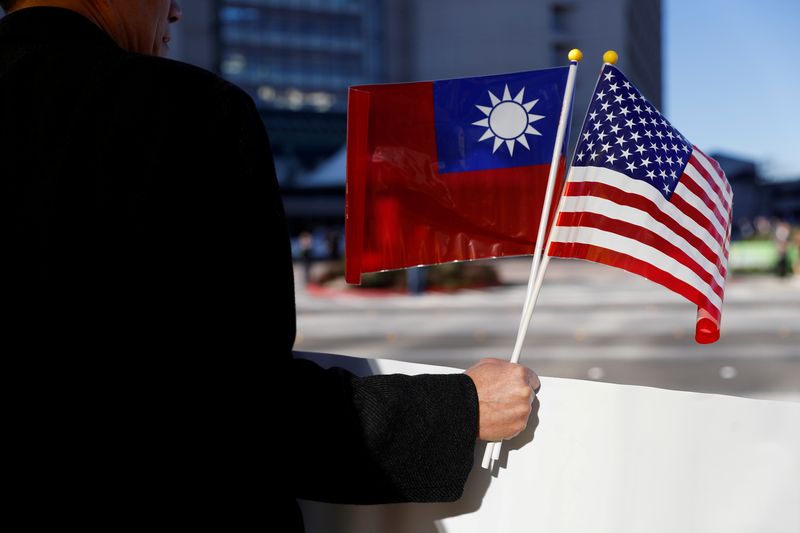WASHINGTON (Reuters) -The U.S. State Department has approved a $300 million sale of equipment to help maintain Taiwan's tactical information systems, the Pentagon said on Friday, the latest U.S. assistance for the island's defenses.
The United States is bound by law to provide Taiwan, which China claims as its territory, with the means to defend. Arms sales are a frequent source of tension between Washington and Beijing.
The Pentagon's Defense Security Cooperation Agency said the sale was for follow-on life cycle support to maintain Taiwan's Command, Control, Communications and Computers, or C4, capabilities.
The support would improve Taiwan's capability to "meet current and future threats by enhancing operational readiness" and maintain existing C4 capabilities that provide secure flow of tactical information, it added.
Taiwan's defense ministry said the sale would help maintain the effectiveness of its joint combat command and control systems so it can improve battlefield awareness.
"The Chinese communists frequent military operations around Taiwan presents a serious threat to us," the ministry said, adding it expected the sale to "take effect" in one month and expressed its thanks to the United States for the sale. The U.S. Congress will be notified and the sale is likely to go ahead.
Taiwan's presidential office said the deal, the 12th arms sale by President Joe Biden's administration to Taipei, demonstrates the importance the U.S. government attaches great importance to the island's defensive needs.
Democratically governed Taiwan has complained of repeated Chinese military activity near the island over the past four years, as Beijing seeks to asserts its sovereignty claims.
Taiwan's defense ministry said on Saturday morning that in the previous 24 hour period it had detected nine Chinese military aircraft crossing the sensitive median line of the Taiwan Strait.

That line used to serve as an unofficial barrier between the two, but China's air force now regularly sends its aircraft across it, though they have not flown into Taiwan's territorial air space.
Taiwan, whose government says only the island's people can decide their future, holds presidential and parliamentary elections on Jan. 13 which will shape the island's future relations with China.
